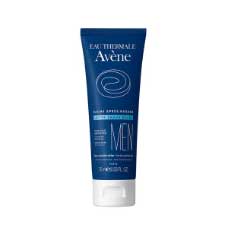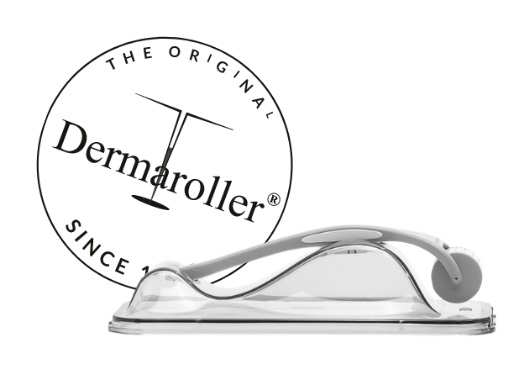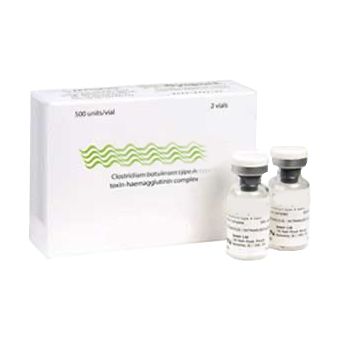 Even the most diligent beauty enthusiasts fall foul of sneaky hygiene habits that quietly sabotage their skin. You might be double-cleansing, applying targeted serums and investing in top-tier moisturisers, but if you’re skipping showers after workouts, reusing towels, or scrolling on your phone mid-skincare application, you could be undoing all the hard work.
Even the most diligent beauty enthusiasts fall foul of sneaky hygiene habits that quietly sabotage their skin. You might be double-cleansing, applying targeted serums and investing in top-tier moisturisers, but if you’re skipping showers after workouts, reusing towels, or scrolling on your phone mid-skincare application, you could be undoing all the hard work.The truth is, great skin isn’t just about what treatments you have or what you put on your face, it’s also about your daily habits. Poor hygiene habits can lead to a cascade of skin issues—clogged pores, breakouts, irritation, premature ageing, dermatitis and even infections. So, before you blame your breakout on that new serum or sunscreen, take a closer look at what you’re doing on a daily basis that might be wreaking havoc on your skin.
Our EV Experts share what they view as the prime culprits and what to do instead, so you can finally have the clear, calm, healthy skin you deserve.
Neglected pillowcases
“One of the most overlooked yet significant factors contributing to skin issues has to be the irregular changing of pillowcases. While most of my clients diligently follow their evening skincare routine, they unknowingly sabotage their efforts by resting on pillowcases they've been using for weeks. These seemingly clean pillowcases become a reservoir for dead skin cells, sweat, bacteria, hair products and skincare product residue. Night after night, these accumulated residues transfer to your skin, creating a perfect environment for acne-causing bacteria and possible allergic reactions, especially for acne-prone or sensitive skin. For those investing in advanced treatments or struggling with stubborn breakouts, this habit can significantly hinder progress. Ideally, pillowcases should be changed at least every other night, and consider silk or antimicrobial fabrics as they absorb less moisture and bacteria compared to cotton, reducing friction and helping to maintain skin hydration overnight.”Corina Mihalache, Aesthetician and Founder, Ace Skin Health Clinic
Over washing skin
“The misconception that frequent washing helps to eliminate acne or pigmentation often leads to compromised skin health. I often come across clients who wash their face 3-4 times a day because they believe that more cleansing means better results. However, washing too often destroys the skin's natural protective barrier and compromises the delicate microbiome and acid mantle. This triggers a counterproductive cycle in which the skin tries to compensate for the loss of oil and produces excess sebum, which can exacerbate acne and inflammation. In addition, the weakened skin barrier becomes more susceptible to environmental damage and hyperpigmentation. I recommend limiting cleansing to the morning and evening and using a pH-balanced cleanser. To refresh at lunchtime or after exercise, opt for plain water or a thermal water mist rather than another full cleanse.”Corina Mihalache
Bacteria-laden towels
“If you’re patting your face dry with a damp, days-old towel or reusing the same flannel all week, your skin might be in need of help. Towels and face cloths absorb everything from water, oil, and make-up residue, to dead skin cells and bacteria. If they don’t fully dry between uses (and they often don’t in steamy bathrooms), they become the perfect environment for bacteria and even mould to thrive. That means each time you reuse them, you could be pressing a petri dish into your pores. The result? Breakouts, irritation, and that inexplicable rash that won’t go away. For your best skin yet, switch to a clean, soft flannel or face towel every single day.”Corina Mihalache
Dirty glasses
“Glasses and sunglasses are major culprits when it comes to skin irritation and breakouts, especially around the nose, temples, and cheekbones. We tend to be diligent about cleaning the lenses, but the frames not so much. Over time, oil, sweat, make-up and bacteria build up on the parts that rest directly on your skin. That gunk can clog pores and lead to blackheads or acne, particularly on the nose and where the arms meet your face. If you wear glasses regularly, try to get into the habit of giving the entire frame a thorough clean at least twice a week, using gentle soap and warm water or alcohol wipes. Your skin will thank you for it.”Corina Mihalache
Using your phone
“Constantly touching your phone in-between applying products by hand can quietly introduce bacteria and grime right where you don’t want it. Our phones are host to everything from facial oils to bathroom bacteria, and when you’re applying serums or blending foundation, even brief contact with your device can transfer germs straight to your skin, potentially causing breakouts and irritation. If you're going to scroll during your beauty routine, give your phone a quick wipe with an alcohol pad beforehand. Better yet, take a device break and enjoy the ‘me-time’.”Sara Cheeney, Aesthetic Nurse and Director, Pure Perfection Clinic
Skipping a post-workout shower
“After a workout, it’s tempting to ride the endorphin high and skip straight to errands or brunch without showering, but your skin might pay the price. Sweat itself isn’t the problem, it’s what happens when it lingers. As it dries, sweat traps bacteria, dirt, and oils against your skin, especially in warm areas like your chest, back, and inner thighs. This can cause clogged pores, body acne, irritation, and even fungal infections. Ideally, you should shower within 30 minutes of finishing a workout to rinse away build-up before it causes issues. If that’s not an option, wipe down your body with body wipes or a damp cloth until you can hop in the shower and change into clean, dry clothes.”Sara Cheeney
Ditching your evening skincare
“After a long day, it’s easy to tell yourself you’ll wash your face in the morning, but if you make this a habit your skin will definitely feel the effects. Leaving make-up on overnight isn’t just bad for your pores, it actively accelerates skin ageing, dullness, and breakouts. Even if you didn’t wear make-up, your skin still collects oil, sweat, bacteria, and environmental toxins throughout the day. When you skip your nighttime cleanse, all of that sits on your skin, seeping into pores, causing inflammation, and breaking down collagen while you sleep. To make your nighttime routine less time consuming, create a simple regime that utilises multitasking products so you can cleanse, hydrate, treat and nourish the skin in a jiffy.”Sara Cheeney

 Added to basket
Added to basket

 Unapplied Changes
Unapplied Changes



















